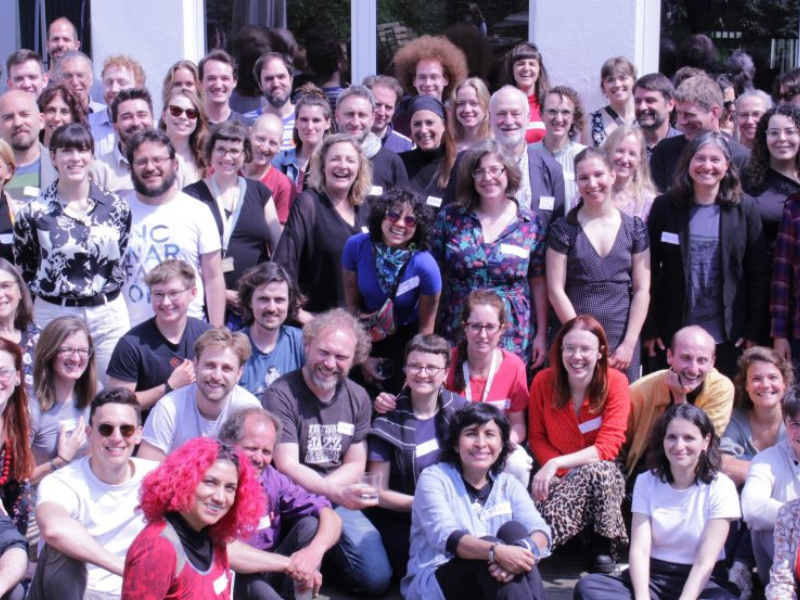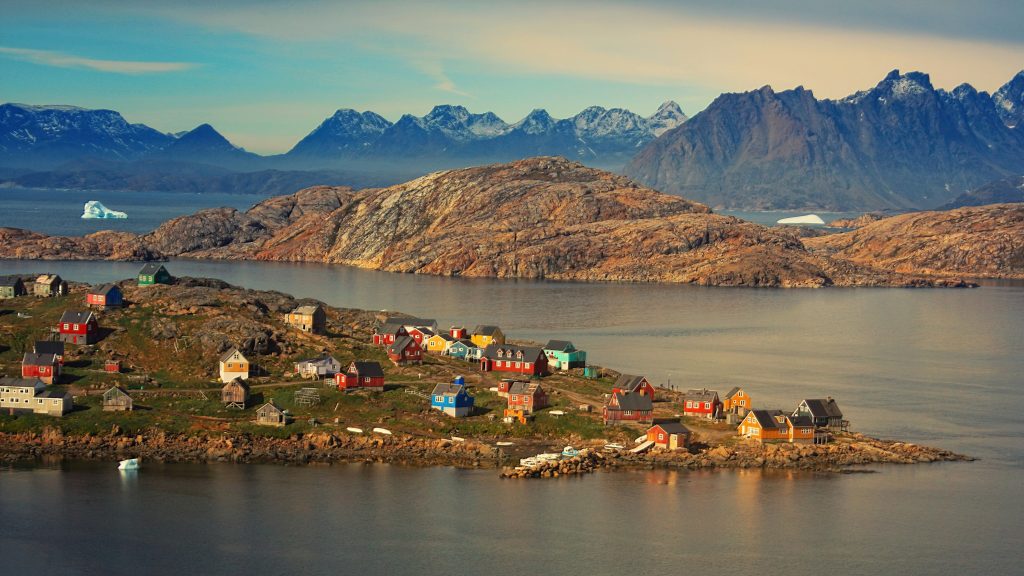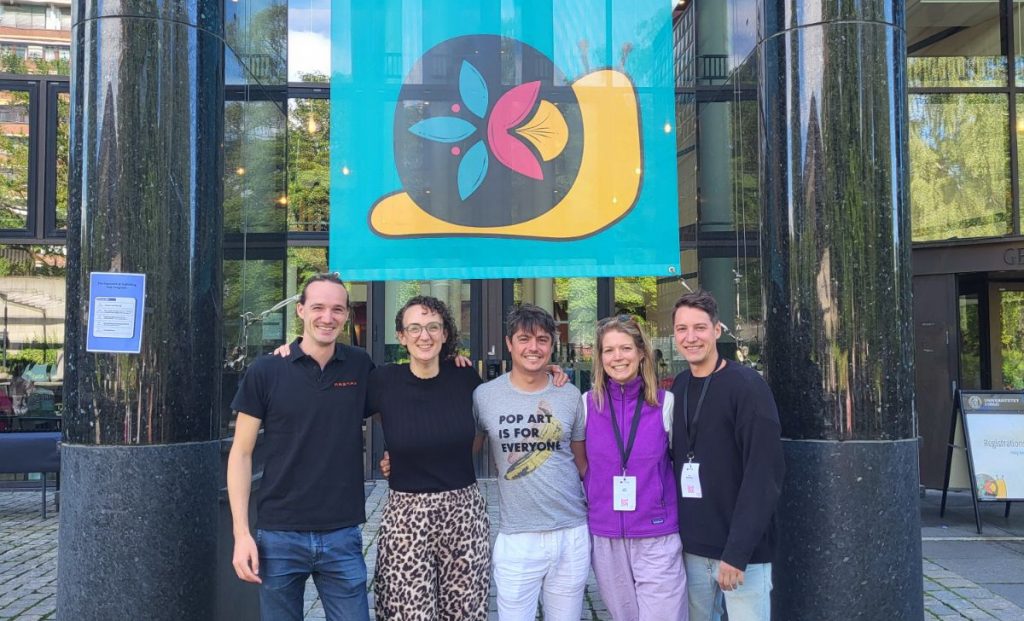
In this response to the European Commission’s reaction on our Open Letter calling for a Post-Growth Europe, Friends of the Earth Europe and allied organisations and academics renew their demand for the EU to disengage from the socially and ecologically harmful growth competition and instead embrace a wellbeing cooperation.
Authored by:
Timothée Parrique
Kate Raworth
Vincent Liegey
To:
Ursula von der Leyen, President of the European Commission
Cabinet of the Chief Executive Vice President of the European Commission for the European
Green Deal
Friends of the Earth Europe
European Environmental Bureau
European Youth Forum
Wellbeing Economy Alliance
Valdis Dombrovskis, Executive Vice President of the European Commission
Marcos Alonso Alonso, Permanent Representative of Spain to the EU
Charles Michel, President of the European Council
Roberta Metsola, President of the European Parliament
Honourable European decision-makers,
We thank Mr Samson and Mr Hager for responding to our letter, which was signed by over 400 civil society organisations and academics working on crucial structural reforms in the EU. In the spirit of transparency regarding matters of such strategic importance, we hereby inform you that our written conversation on this topic will be put in the public domain. We believe this exchange could inspire a broader debate among the European public on the extent and urgency of the sort of transformations that we largely seem to agree are needed.
In your reply to our letter, you claim that the 8th Environmental Action Programme (8th EAP) will make sure that “growth is sustainable”. However, the 8th EAP explicitly focuses on a regenerative future, because scientists have declared “sustainable growth” in Europe a contradictory matter. As economist Kate Raworth put it: “We need to turn today’s economies, which are degenerative by default into ones that are regenerative by design”. Sustainability is about reducing the harm done. Regeneration actively restores the broken natural systems.
As we have emphasised in our original letter – and as has been confirmed in numerous academic studies since then, pursuing continued GDP growth in high-income countries remains incompatible with the terms of the Paris Agreement. To quote a paper published in The Lancet earlier this year: “At the achieved [decoupling] rates, these [high-income] countries would on average take more than 220 years to reduce their emissions by 95%, emitting 27 times their remaining 1.5°C fair-shares in the process.” We need to move beyond the rhetoric of ‘sustainable’ GDP growth – if we are to avoid a terrible collapse.
The European Environmental Agency (EEA), the European Parliamentary Research Service (EPRS), as well as independent researchers rule out the feasibility of pursuing endless economic growth while securing a liveable future for all. We need your courageous political leadership to steer us through complex transformation of norms, values and systems.
In addition to the above, you wrote that the European Green Deal is about decarbonisation and dematerialisation. We agree that it should be about both; however, concrete dematerialisation targets are strikingly absent from the Circular Economy Action Plan 2.0 within the European Green Deal package. The EU’s material footprint is 13.7 tonnes per capita annually. If all humanity were to do the same, we would need almost three planets of the Earth’s size and resource reserves to maintain this pace. Since 2010, our material footprint has remained relatively stable when, instead, it should be declining fast. We strongly believe that an EU framework with science-based and binding material footprint reduction targets can be effective in delivering a regenerative and circular EU economy, as called for by scientists, NGOs, several EU Member States (in particular Austria) and the European Parliament.
We urge you to set binding targets to reduce the EU’s material footprint in line with earth’s biocapacity, on top of the existing GHG emissions reduction targets. We are convinced that preparing such a strong and binding dematerialisation plan is not only beneficial for Europe and the world, but also for your duty of care.
In your letter, you mention President von der Leyen’s popular comment made at the Beyond Growth conference about growth centred on fossil fuels being obsolete. While we agree with this, it is important to keep in mind that so is a growth model that relies on lithium. The vast majority of expert speakers at the conference spoke passionately about how economic growth in Europe is utterly unsustainable.
Your reminder that “investments to reduce our environmental and carbon footprint will contribute to growth” is not the paradigm shift needed at the Commission. Growth is not a worthy end goal itself. In fact, too narrow a focus on economic growth is constantly torpedoing the efforts made by you, as well as by us, to avoid collapse in light of a combined loss of biodiversity, climate stability and regenerative capacity in the face of a pollution epidemic. Prosperity and wellbeing in Europe without continued GDP growth are possible – and the only sustainable way of ensuring these for future generations. Academics, civil society and even EU agencies like the European Environmental Agency and the Joint Research Centre can offer resources and advice to help policymakers move beyond the GDP growth goal.
You end your letter with a mention of the “Commission’s internal work on developing Sustainable and Inclusive Wellbeing metrics to complement GDP”. The European Commission’s Joint Research Centre indeed collaborated with the Members’ Research Service of the European Parliamentary Research Service on a study linked to the Beyond Growth Conference in the European Parliament – the largest event in the European Parliament in this political term. In the study, one of the key conclusions states that a complement to GDP will not be good enough, and that a substantial review of the treaties, which push us in the wrong GDP growth direction, is going to be needed.
At this point, we would like to remind you of the demands that scientists, academics and civil society have agreed upon – and to which we would still appreciate a more direct response. We believe that, until these points are taken seriously, the EU will only see more and more disruptions, as well as continue sliding down from the current polycrisis to a permacrisis. More than 400 civil society organisations and academics reiterate our call on the European Union, its Institutions and Member States to implement:
1. Post-growth European Institutions: constitute permanent structures at the Commission, the Council, the Parliament, and within Member States to assess post-growth strategies and pathways.
2. European Green Deal beyond growth: design a new flagship programme shaped around a systemic change approach that aspires to create a thriving future within planetary boundaries, with degrowth as a necessary transition phase towards a post-growth destination.
3. Specific and strong beyond growth policies based on the four principles of:
• Biocapacity: a Fossil Fuel Non-Proliferation Treaty, a Resource Justice and Resilience Act including a binding material footprint reduction target and real, area-based nature restoration.
• Fairness: A carbon wealth tax, both minimum and maximum incomes.
• Wellbeing for all: Universal Basic Services (including the human rights to health, transport, care, housing, education and social protection etc.), job guarantees, price controls for essential goods and services.
• Active democracy: citizen assemblies with mandates to formulate socially acceptable sufficiency strategies and strengthen policies based on ecological limits, fairness and wellbeing for all and a stronger role for trade unions. E.g., local needs forum, climate conventions, participatory budgeting.
Aside from our broad alliance, there is also a cross-party group of 20 MEPs from 5 political groups that have all supported the Beyond Growth Conference. We call upon the political leadership of the EU to take their non-partisan proposals for deep reforms very seriously.
We look forward to discussing these matters with you in the near future.







